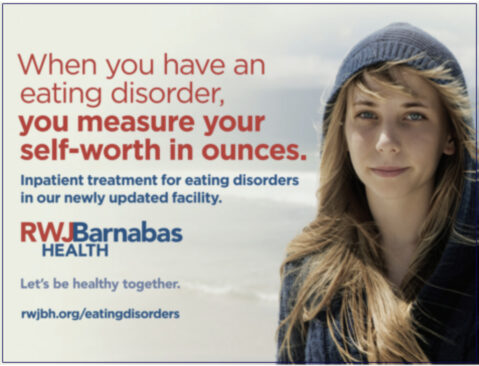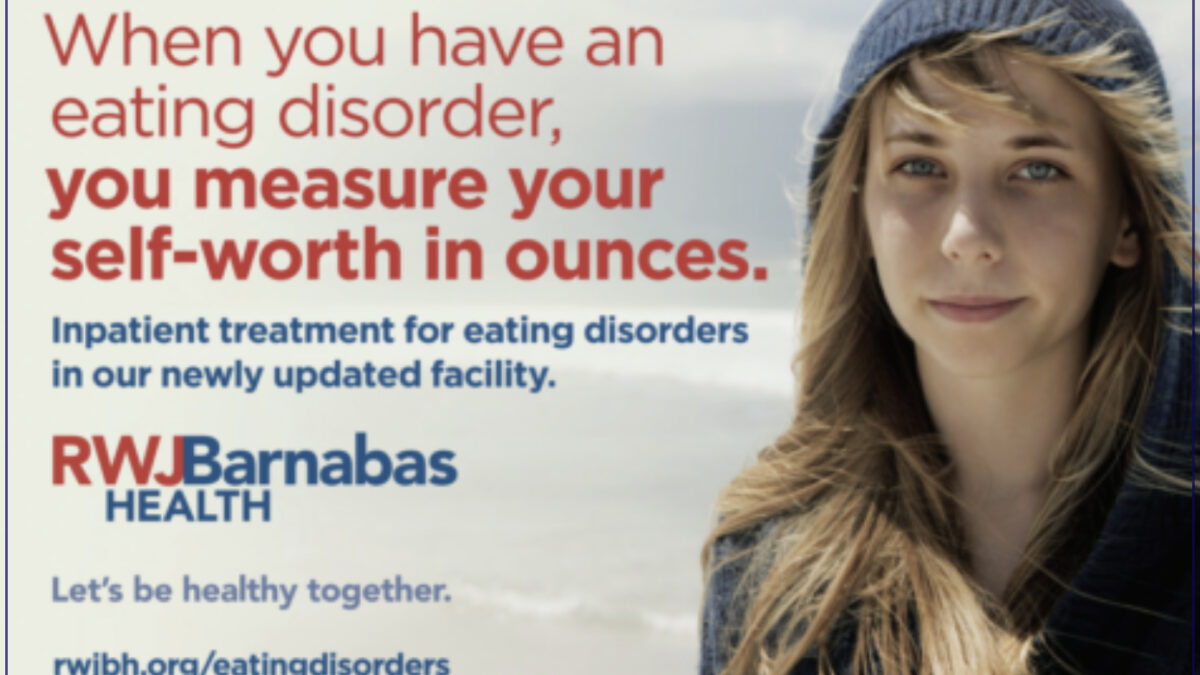
Press Release – Call for Entries – Creative Arts Festival
February 26, 2025
Long Branch Starts “Free Little Art Gallery” Initiative: Sparking Creativity, Public Art, and Happiness
February 26, 2025Eating disorders among teens are on the rise. 9% of New Jerseyans, close to 800,000 people, will have an eating disorder in their lifetime, (Harvard University). Eating disorders affect approximately 30 million children, adolescents, and adults in the United States (RWJ Barnabas Health).
Feb. 24 to March 2 is Eating Disorders Awareness Week and we have a great expert available for interviews, and have provided some quotes and tips that you can use below.
Expert: Patricia Behrens, M.S.W., C.P.R.P., Volunteer/Outreach Coordinator at 2NDFLOOR®, a free youth helpline that provides support 24/7/365 to New Jersey youth ages 10-24.
Quotes approved for use:
 Eating Disorders on the Rise among Youth – “Sadly, eating disorders are becoming increasingly common among young people, affecting individuals across all genders, ages, and cultural backgrounds. The pressure to conform to ever-changing societal standards of body image is overwhelming, and it’s a struggle for youth to keep up with these expectations.”
Eating Disorders on the Rise among Youth – “Sadly, eating disorders are becoming increasingly common among young people, affecting individuals across all genders, ages, and cultural backgrounds. The pressure to conform to ever-changing societal standards of body image is overwhelming, and it’s a struggle for youth to keep up with these expectations.”
The Challenge – “One of the toughest aspects of recovering from an eating disorder is that food can’t be avoided—your body needs the proper fuel to face the challenges of each day. Without it, you’re entering the fight without the strength you need to succeed.”
Getting Help -“Talking about having an eating disorder is essential because the more we hide or deny our feelings, the stronger and more overwhelming they become. Ignoring what we’re feeling only prolongs the struggle, but speaking out offers a chance for growth and recovery.”
“2NDFLOOR offers young people an opportunity to speak out in an anonymous and confidential way whenever it is needed. Whether they choose to discuss this over the phone, or in a more discreet manner like through the chat box on the app, there is someone to listen and support at all times.”
Words of Wisdom -“Be sure to speak to your body with love and respect. It’s the only one you’ve got, it is your home!”
Ways to recognize a possible eating disorder:
-
Changes in appearance: wearing baggy clothing to hide their bodies, extra concern about body image and appearance.
-
Changes in behavior, attitude, or mood: isolating or distancing themselves from activities, friends, and family and becoming irritable.
-
Changes in eating habits: counting calories, eating less, food avoidance, unusual eating habits such as eating large portions in a short time frame, excessive exercising after eating.
-
Weight fluctuations: extreme weight loss or gain, use diet pills or laxatives, using the scale frequently.
-
Frequent bathroom visits: forcing themselves to vomit, secretly disposing of food.
-
Physical changes: fatigue, dizziness, fainting, hair thinning or loss, or hot flashes.
Sources: Cleveland Clinic, Children’s Hospital Colorado, and CHOC.
Please contact me at kayla@princetonsc.com if you would like to speak with Patricia about this or other youth mental health issues, or to find out more about the support and informational resources provided through 2NDFLOOR.





